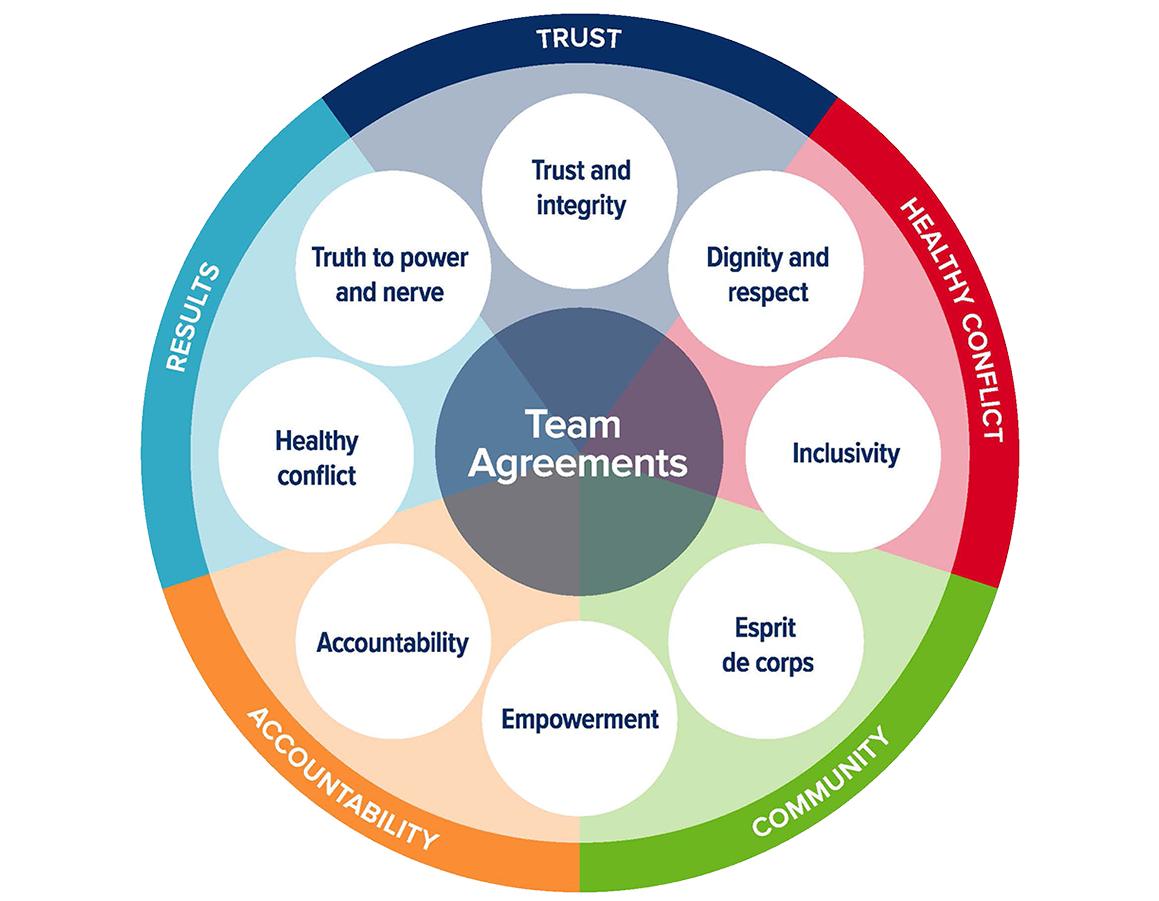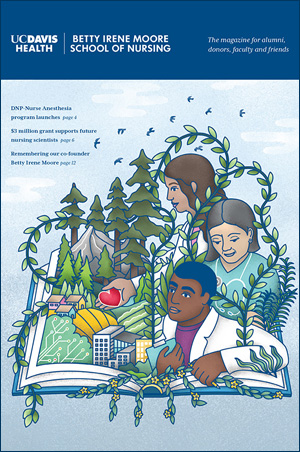Team Agreements

The School of Nursing Team Agreements are made up of eight principles to optimize the way students, faculty and staff work together.
Students, faculty and staff at the Betty Irene Moore School of Nursing continuously work to build a strong community. Based on work in various groups, the following team agreements were developed as guiding principles on how we seek to exist as a school-wide team in accordance with the mission and core values of our school. The following eight principles were identified as areas that each team member agrees to uphold to optimize the way we function together as a team and enhance our school culture.
1. Trust and integrity
These values are critical to high functioning teams. Transparency, honesty, character, consistency, reliability and justice are essential components. Trust is a two-way street. High levels of trust are enacted with behaviors including good communication, sense of community, competence, accountability, honesty and consistency.
2. Dignity and respect
Through acknowledgment of dignity and through respect, we express appreciation of the value of an individual as well as their skills, ideas and perspectives. These are both essential to fostering a strong inclusive community and are enacted with behaviors and skills including intense listening, assuming good intentions, generosity of heart, humanity, humility and appreciative inquiry.
3. Inclusivity
Inclusivity is defined as an intentional policy of including people who might otherwise not be included, emphasizing not excluding members or participants on the ground of gender, race, class, sexuality, disability, employee status, etc. In our school that means focusing on the various sub-cultures and enacting this dimension with behaviors and skills including openness, engagement, welcoming, appreciation and cultural vigor.
4. Esprit de corps
Esprit de corps is defined as a feeling of pride, enthusiasm, devotion, fellowship and common loyalty. It comes from groups who have a common interests and responsibilities and who are closely associated. The staff and faculty of the school exhibit esprit de corps when we work together with persistence toward achieving the vision, mission, and core values of the school with behaviors and skills including conducting open meetings, asking respectful questions and thinking team first.
5. Empowerment
Empowerment is a management practice of sharing information, rewards and power with employees so that they can take initiative and make decisions to solve problems and improve service and performance. Empowerment is enacted with behaviors and skills including leadership, skill sharing, delegation, motivation, encouragement and collaboration.
6. Accountability
Accountability is about our interdependence to get our work done and to meet our mission. We are, therefore, accountable to one another. Accountability is enacted with behaviors and skills including doing what we say we will do, authenticity, responsibility, clarity of communication, perseverance, not promising more than we can deliver and follow through.
7. Healthy conflict
Healthy conflict is a natural part of communication and working as part of a team. We benefit from a culture that values diverse thinking and the ideas that arise when we share different points of view. We value the role healthy conflict plays in helping to build momentum, moving the school forward, prioritizing scarce resources and aligning expectations. It is enacted with behaviors and skills including valuing cognitive diversity, engaging in active listening, focusing on the topic or objective, not making things personal and rejecting defensiveness.
8. Truth to power and nerve
Truth to power and nerve derives from, “the effort that is made to speak from the deepest insight.” Power is a shared responsibility of all members of our community and is enacted through behaviors and skills including actively listening to opposing views with an open mind and open heart; creating a zone of safety; using restorative justice to repair harm when it occurs; mindfulness of body language, word choices and tone; courage; objectivity and compassion.





